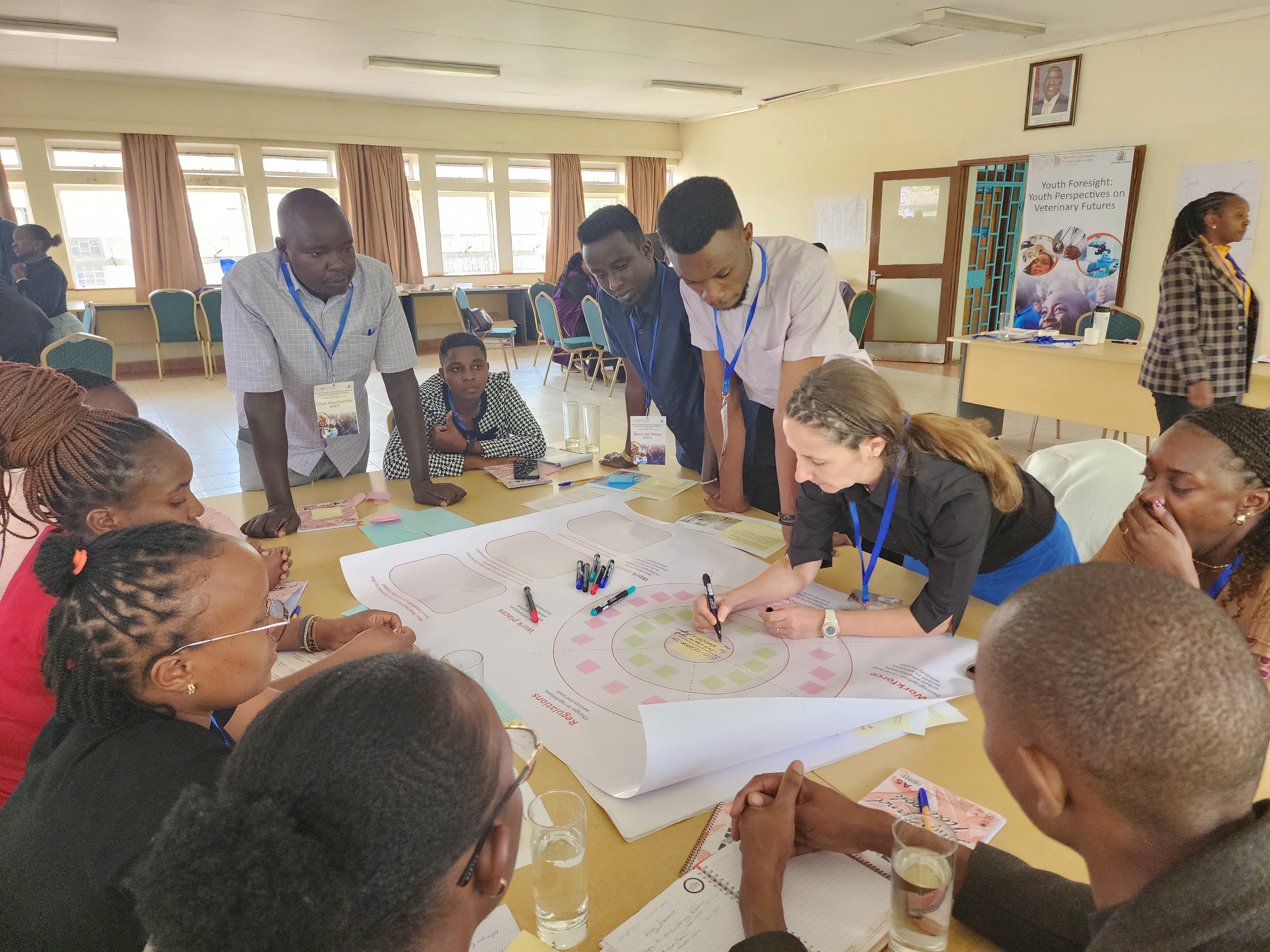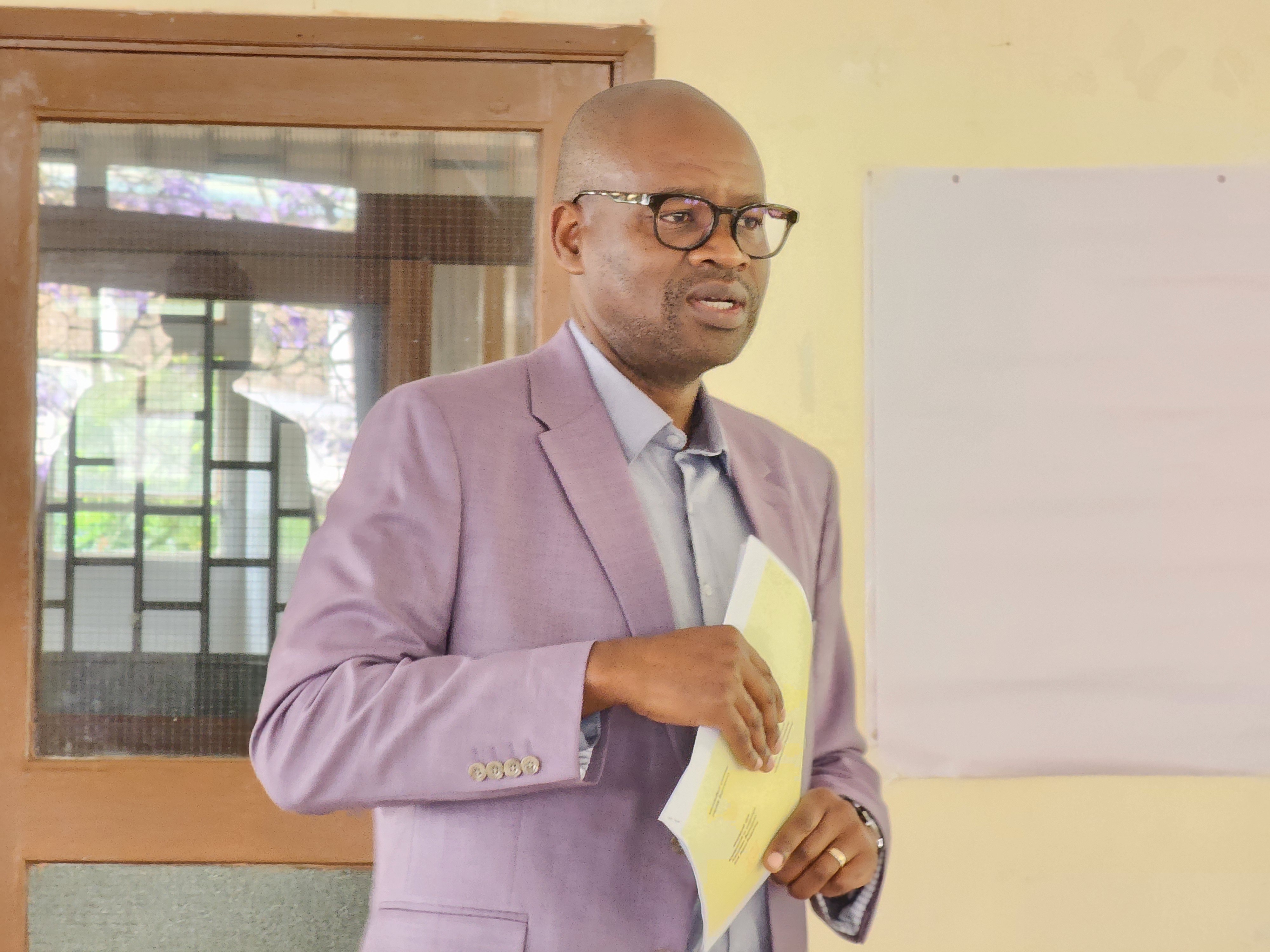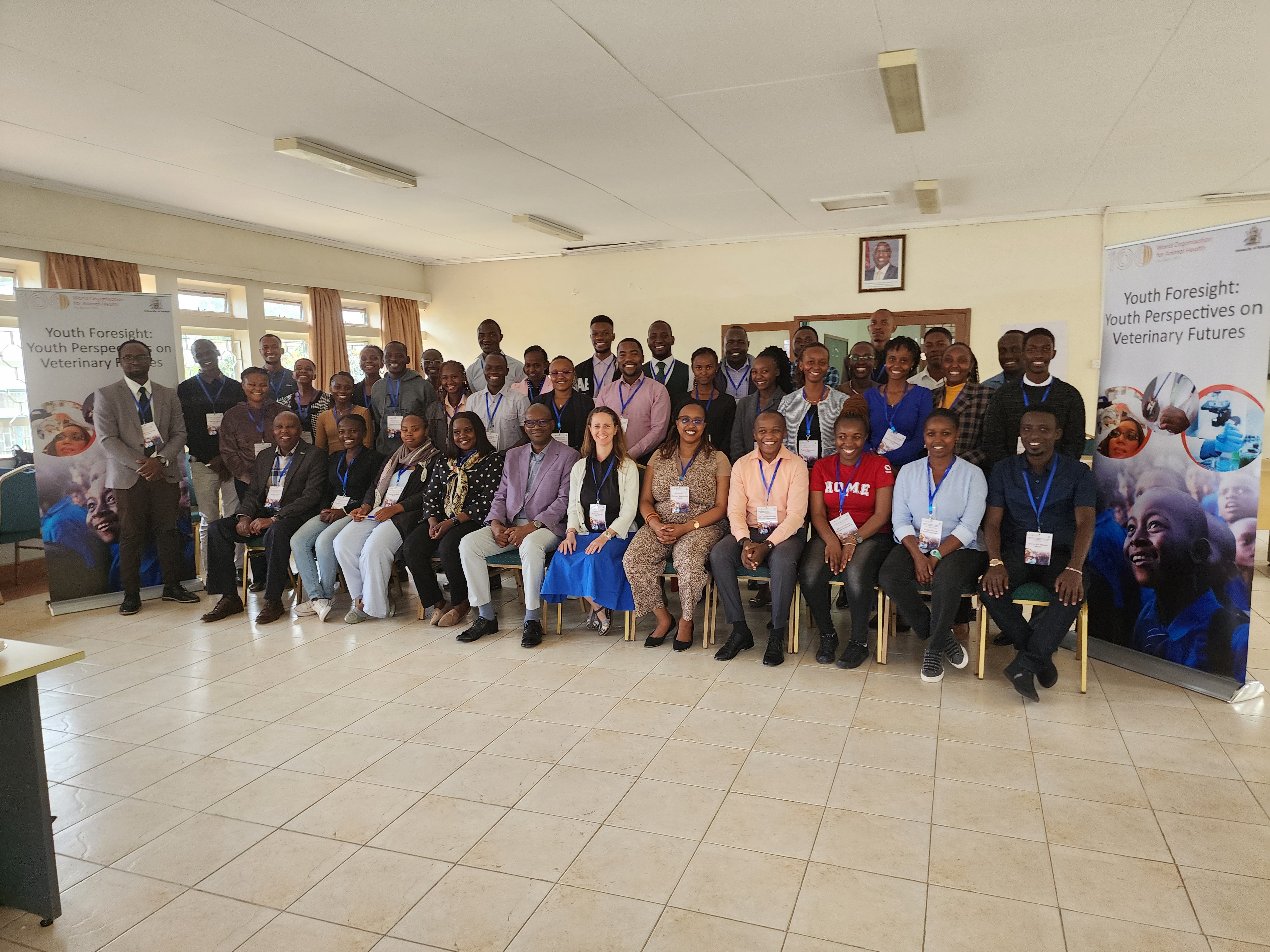
As Africa prepares for a Continental Conference on Veterinary Workforce in Africa from 26 – 28 November 2024, youth engagement is taking centre stage at the conference, which will invite veterinary services to include youth voices in shaping the future of the veterinary workforce across the continent. The recent workshop held at the University of Nairobi on 16 October 2024, highlighted the importance of involving young veterinary professionals and paraprofessionals in addressing emerging challenges and opportunities within the field. This event, titled “Shaping the Future of Veterinary Medicine: Youth Perspectives on Trends and Challenges,” underscored the critical role that young voices play in workforce development, especially as they bring fresh perspectives to a rapidly evolving sector.
Dr Neo Mapitse, WOAH Representative for Eastern Africa, while opening the workshop, engaged the young professionals in forward thinking discussions on how their valuable contributions in the sector can be enhanced and built. Also, in attendance were WOAH staff in the PCTAD Project workforce development team, who guided the group exercises.
Dr Neo Mapitse, WOAH Representative for Eastern Africa, speaking when he engaged young professionals and students during the workshop.
Dr Neo Mapitse, WOAH Representative for Eastern Africa, speaking when he engaged young professionals and student veterinarians during a Workshop on Youth Perspectives in the Veterinary Sector. Picture (c) L. Iyadi (WOAH) 2024.
Veterinary Services have a direct impact on the future of both animal and human health. As veterinary professionals complete rigorous training programmes that can last a decade or more, it is critical that they have future-ready skills and adaptable mindsets. Today’s students and young veterinary professionals will form the foundation of veterinary services in a “VUCA world”—one that is volatile, unpredictable, complex, and ambiguous.
The workshop at the University of Nairobi (UoN) was one of three workshops led by WOAH this October, the other two held online on 13 October in English and on 28 October in French. The three events addressed these dynamics, gathering insights from the students and young professionals on how to bridge gaps in current training, particularly in leadership roles and innovative career pathways.
Participants raised topics such as the role of mental health in veterinary practice, the impact of digitalization, and the shift towards greener, more sustainable veterinary practices. Emphasizing skills beyond traditional curricula is essential for fostering adaptability and resilience in young veterinarians, helping them tackle unpredictable challenges, such as those seen during the Covid-19 pandemic.
Recognizing the need for inclusivity, the World Organisation for Animal Health (WOAH) has identified the need to include youth engagement within its framework. Traditionally, WOAH collaborates with seasoned veterinary experts and Chief Veterinary Officers (CVOs), but the organisation has recently made strides in consulting with youth representatives through initiatives like the International Veterinary Students Association (IVSA). It is hoped that these international platforms will help encourage opportunities for national and regional inclusion of youth voices in veterinary workforce planning. As Members engage young voices, this ensures that strategic workforce planning and policies align with the needs and aspirations of future professionals, fostering a veterinary ecosystem that values diversity, innovation, and forward-thinking leadership.
The three workshops employed strategic foresight tools to encourage participants to envision the future of veterinary medicine. Through interactive sessions on “futures thinking”, participants explored emerging societal, technological, and geopolitical trends that could shape veterinary services. Tools like the Futures Wheel enabled youth to visualise potential direct and indirect impacts of these trends, allowing them to identify and discuss significant “Change Drivers” expected to influence the veterinary profession over the coming decade. This approach emphasised the importance of continuous learning, strategic planning, and adaptability as key competencies for the veterinary workforce.
The insights gathered from these youth-focused workshops will directly contribute to the discussions at the upcoming Veterinary Workforce Development Conference in November 2024. Various youth stakeholders will be represented, including a student veterinary association, the IVSA, and veterinary and VPP students who attended the preliminary workshops. The conference will serve as a platform for regional collaboration, allowing stakeholders from our Members, CVOs, partners, veterinary associations (VA), educational institutions (VEE) and policy-making bodies to explore strategies that support a well-prepared, resilient workforce for the future.
The workshop in Nairobi, the online events and the upcoming conference underscore an important message: the future of veterinary medicine in Africa depends on today’s investments in youth engagement and veterinary workforce development.
Involving young professionals in strategic planning is not just an opportunity—it is essential for cultivating a veterinary sector capable of meeting the complex demands of tomorrow. As these initiatives continue to unfold, Africa’s veterinary professionals will be better prepared to tackle the challenges of the future, creating a healthier, more resilient world for animals and humans alike.




